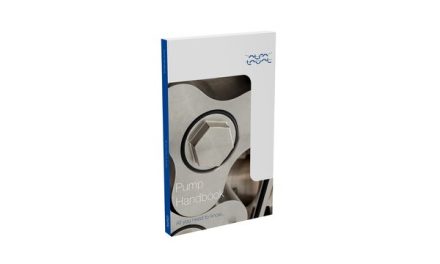 James Roper, industrial brand manager for Durapipe UK, discusses the industry shift toward actuated valves, and outlines the pros and cons of pneumatic and electric actuators
James Roper, industrial brand manager for Durapipe UK, discusses the industry shift toward actuated valves, and outlines the pros and cons of pneumatic and electric actuators
Valves are integral to the efficient operation of many manufacturing and process plants, but the type of valves being installed is rapidly changing across the industry. As plant managers are under rising pressure to increase productivity and reduce costs, more and more processes are being automated, sparking an industry shift over the last year in a move to install actuated valves.
The increase in automated procedures is the result of plant managers looking at ways of achieving greater accuracy of control and efficiency within the plant, while reducing costs. Moving processes away from manual actions to automated procedures reduces manual labour costs and also increases the speed and accuracy of systems.
Plant managers can benefit from automating both systems that are required to perform an action and those that purely monitor processes. When an action is required such as chemical dosing or isolation, undertaking it automatically and controlling it remotely can eradicate the need for any personnel on-site, which reduces plant running costs.
When it comes to monitoring plant processes, if this is conducted by an operative who needs to manually patrol the plant and check all the processes are performing correctly, human error can come into play and oversights could occur. It is impossible for anyone to watch all of the processes all of the time, so issues may not be detected straight away – a delay that could be potentially damaging.
A safer option is to install sensors that monitor the various processes within an automated system, which can be programmed to immediately shut down certain parts of a plant if a problem is detected. This ensures the problem is identified straight away and can be quickly and easily fixed with minimum disruption, downtime and danger to the plant.
This shift to automated processes has brought with it a need to move to actuated valves. Durapipe UK advises that there are a vast array of options available and plant managers need to be careful not to select valves purely on price.
There are two main types of actuators available for valves; pneumatic and electric. There are pros and cons for each, which means there is no right or wrong option – the decision should be made largely based on the facilities that the plant has and the various processing requirements.
Pneumatic valves have a lower unit cost but they require a compressed air system on site to provide an air supply to power the actuator. Such valves only have a few moving parts and are simple to operate offering a longer lifespan, however, they can only be used in two positions; open or closed. The actuator opens and closes the valve very quickly, which may not be suitable for some dosing applications where a small amount of chemical needs to be accurately measured into a system.
The other option available is electric actuators, which can be easily installed wherever there is a power supply. The unit cost, however, is higher due to the more complex mechanisms involved. This actuation also allows the valve to be locked into multiple positions between the open and closed settings and operates more slowly, offering greater flow control through a system.
With so many options available, the task of specifying valves and actuators can be complex, so it is always recommended to seek expert advice. Durapipe UK offers an in-house valve department with technical support staff who can offer advice and knowledge on the specification and installation of valves and actuators, as well as provide on-site training. Durapipe UK also offers the ability to deliver valves direct to site within 24 hours of receiving an order in most cases.
Actuated valves are only a small part of an automated system; automated flow/chemical control and measurement solutions are integral to the efficient running of an automated plant. Therefore it is important that all of these products are considered together at the outset so that a completely fully matched solution is installed.
Durapipe
T: 01543 279909


